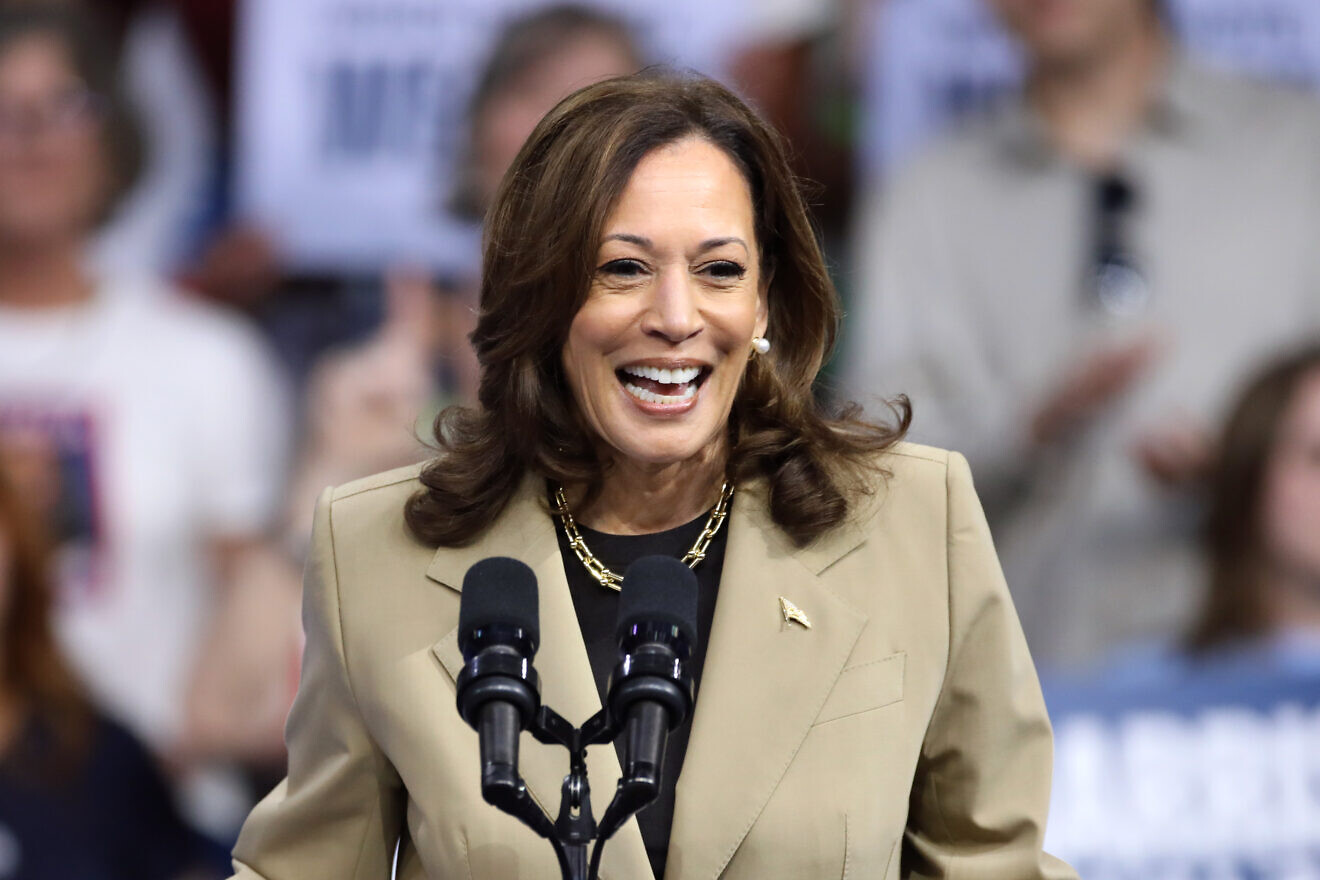In a disconcerting display of barefaced evasion, sidestepping and diversion of a simple interview question, U.S. Vice President Kamala Harris provided more cause for concern for those warning of the grave consequences for Israel if she should win the November election for the U.S. presidency.
During a lengthy interview on CBS’s “60 Minutes,” Harris balked at referring to Israel’s current and longest-serving prime minister, Benjamin Netanyahu as a long-term ally of the United States.
In reply to host Bill Whitaker’s question, “Do we have a real close ally in Prime Minister Netanyahu?” Harris’s blatantly evasive response was: “I think, with all due respect, the better question is: Do we have an important alliance between the American people and the Israeli people? And the answer to that question is yes.”
Harris’s crass attempt to differentiate between the head of Israel’s democratically elected leader and the Israeli people who elected him indicates one of two things—or worse, both. It either reflected hopeless ignorance of the political process in the Israeli polity or revealed utter contempt for the Jewish state, seeing it as nothing more than a “banana republic” in which its electorate can be disregarded, bypassed and supplanted by more pliant minority elites who oppose the majority-elected government.
Dodging the issues
Adding to the reasons for Israel’s accumulating alarm, was Harris’s attitude to the Islamic Republic of Iran. True, when asked to identify America’s “greatest adversary” she somewhat surprisingly singled out the tyrannical theocracy in Tehran rather than China. However, she refused to specify what action, if any, she would instigate to thwart it from achieving its malevolent goals. Thus, even though she stipulated that ensuring that Iran “never achieves the ability to be a nuclear power” is one of her highest priorities, she refused to commit to how she would prevent that from coming about. Indeed, when pressed as to whether she “would take military action” to foil Iranian nuclear designs, her evasive response was, “I’m not going to talk about hypotheticals … .”
This display of open reluctance is comforting news for the mullahs in Tehran. Indeed, as one opinion piece in The Wall Street Journal asserts: “Neither diplomacy nor sanctions will stop the advance [towards Iran’s nuclear goals.]” Despondently, the writers say, “Harris probably knows this. The search for peace and regional stability, the oft-heard aspiration of U.S. policy in the Middle East, now means, when translated into Persian, giving Tehran the bomb”.
In a similar vein, an analysis in The Telegraph accuses “the feckless Biden-Harris administration” of “shameful betrayal” of Israel on the nuclear issue—and of “doing nothing to prevent this nightmare from happening … even pressuring Israel to refrain from taking action against Tehran’s nuclear program.”
Israelis’ overwhelming preference
Given the Democrats’ aversion to any action more robust than diplomacy for the resolution of the Iran nuclear impasse, it is unlikely that they would abandon negotiations no matter what the Iranian provocations or transgressions.
It is thus hardly surprising that according to a recent ABC News poll, Israelis prefer former President Donald Trump—Harris’s opponent in the November elections—at a rate of more than 2-to-1, while on security issues the ratio is 3-to-1 in favor of Trump.
For Israel, the indulgent approach of the Biden-Harris administration is a matter of critical, indeed, existential importance. Thus, informed sources charge that since the Biden-Harris incumbency, Tehran increased the number of centrifuges almost 15 times, grown its uranium enrichment to 60% and more than quadrupled its oil production.
But beyond Harris’s Obama-like docility towards the ayatollahs, there are additional reasons for grave apprehension regarding the murky relations that underlie the support for Harris’s presidential campaign. In part, this involves her endorsement of Armenia in its clash with Azerbaijan in an attempt to curry favor with the influential U.S. Armenian diaspora.
While it is understandable that diasporic communities seek to maintain warm supportive sentiments towards their motherland, this cannot conceal the troubling behavior of Armenia in recent years, including acting as a conduit for circumventing U.S.-led sanctions against Iran and Russia. Indeed, in light of Tehran’s ongoing endeavor to enhance its influence with Yerevan, Israeli sources warn that Armenia could be on its way to becoming a new Iranian proxy. Especially worrying is the reported $3 billion security collaboration and covert arms deal between the two countries.
One can only wonder whether Harris is unaware of the pernicious role Armenia has hitherto played in undermining Western objectives or whether her political ambitions have made her insensitive towards them. In her apparent clamor to find favor with voters of Armenian descent, Harris has even exceeded the demands of Armenia itself! Thus, she essentially called for a return to the pre-2023 status quo ante in Nagorno Karabakh—notwithstanding that the Armenian government has reiterated that, for them, “the Karabakh issue is closed.”
For Jews: A stark choice
Although Israeli officialdom has scrupulously avoided taking sides in American elections, there can be little doubt that the November poll has crucial importance for the Jewish state. After all, beyond the niceties of diplomatic decorum, for Israel, life-and-death issues are at stake.
Thus, despite professions of Democratic support for Israel, there are mounting reasons for believing that Tehran’s tyrannical mullahs would applaud a Harris victory. Conversely, there is a growing body of opinion that the radical rulers of the Islamic Republic view the election of Trump, who in the past brought them to “the brink of financial collapse,” with increasing trepidation.

























